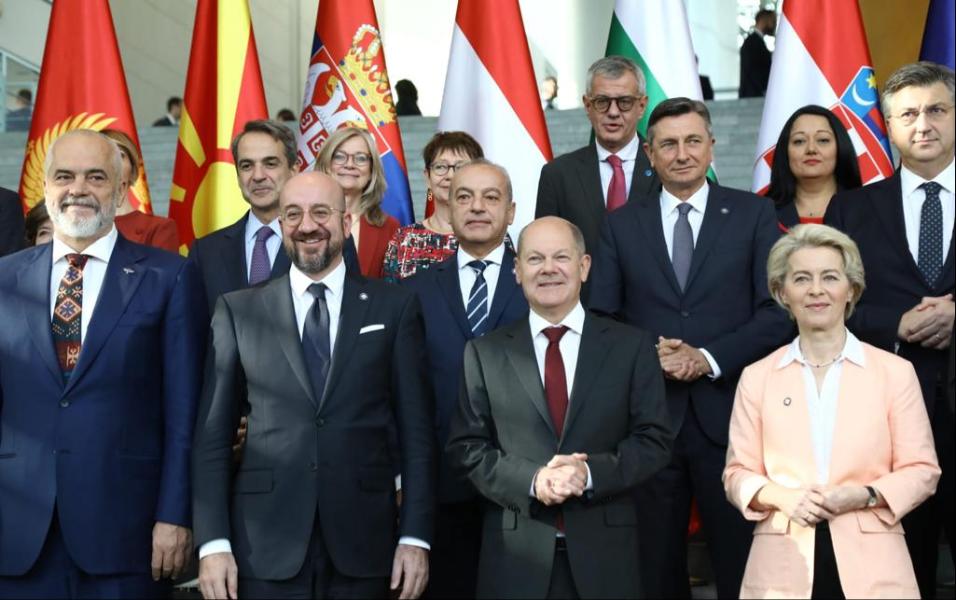
- The EIB is ready to intensify its support for the region in addressing energy challenges.
- EIB Vice-President Pavlova welcomed the European Commission’s new Energy Package to address short and medium-term challenges in the Western Balkans.
- In 2022, the EU bank scaled up technical support, initiating eight energy efficiency projects in the region.
During the Berlin Process 2022 Western Balkans Summit, European Investment Bank (EIB) Vice-President Lilyana Pavlova reaffirmed the EU bank’s support for the green transition and energy security in the region. Under its new dedicated structure, EIB Global, the Bank is scaling up financial and technical support to help the region move forward with the Green Agenda, diversify its energy mix and increase resilience to climate change. Vice-President Pavlova highlighted the energy package for the Western Balkans — recently announced by the European Commission President Ursula von der Leyen — as a clear demonstration of the European Union’s solidarity with the region.
“Diversifying the energy mix and increasing the resilience of the region to climate change will bring great benefits to citizens. As the EU bank, the EIB will accompany you throughout this journey. We will put our comprehensive mix of lending, blending and advisory services at the heart of these efforts. As always, we will do this alongside partners and Team Europe approach to implementing the European Union’s Economic and Investment Plan,” she said.
In close cooperation with the European Commission and other Team Europe partners, EIB Global is actively working to develop a number of renewable energy investments in the region, such as the windfarm in Vlašić and solar plant in Obilig. At the same time, the Bank is developing innovative financial instruments for the region to boost cleaner energy, climate adaptation and green technological development, while also stimulating private sector investment in the green and digital transition.
“In particular, we will work with you on renewable energy, tapping the substantial potential for wind and solar energy in the region. We will help you make more effective investments in electricity networks and storage infrastructure. Moreover, you can rely on the EIB to ensure that energy efficiency is an integral part of all our investments in transport, urban development, housing, waste management and private sector development,” added Vice-President Pavlova.
In 2022, EIB Global has so far provided eight technical grants amounting to over €8 million under its Economic Resilience Initiative for energy efficiency projects in the Western Balkans, including a social housing project in Tirana and a district heating system in Priština. The EU bank will continue to boost energy security, regional cooperation and connectivity, which are in the essence of the Berlin Process and among the commitments endorsed by the Western Balkans leaders at the summit.
“The speed and precision with which you implement the agreements you have reached at this summit today on energy and the green transition — and on greater mobility to enhance your common regional market — will determine how quickly benefits can accrue to your people,” concluded Vice-President Pavlova.
EIB Global has invested €9.5 billion in the energy sector in the Western Balkans since 2009, contributing to the development of vital infrastructure, private sector growth, and a more secure and diverse energy network.
Background information
About EIB Global:
EIB Global is the EIB Group’s new specialised arm dedicated to increasing the impact of international partnerships and development finance. EIB Global is designed to foster strong, focused partnerships within Team Europe, alongside fellow development finance institutions and civil society. EIB Global brings the Group closer to local people, companies and institutions through our offices across the world.
About the EIB in the Western Balkans
The EIB is a leading international financier in the Western Balkans. Since 2009, the Bank has financed projects totalling almost €9.5 billion in the region. Besides continuing its support for the reconstruction and upgrading of public infrastructure, since 2010 the EIB has expanded into many new areas, such as healthcare, research and development, education and small and medium-sized enterprises (SMEs).

